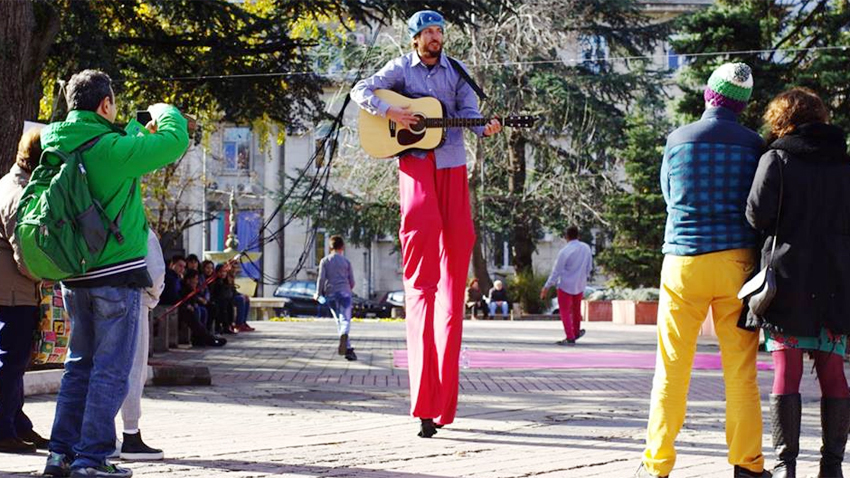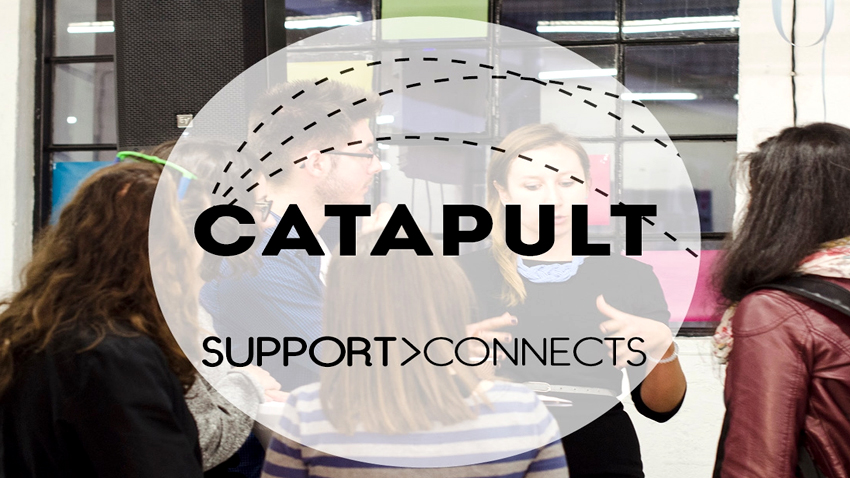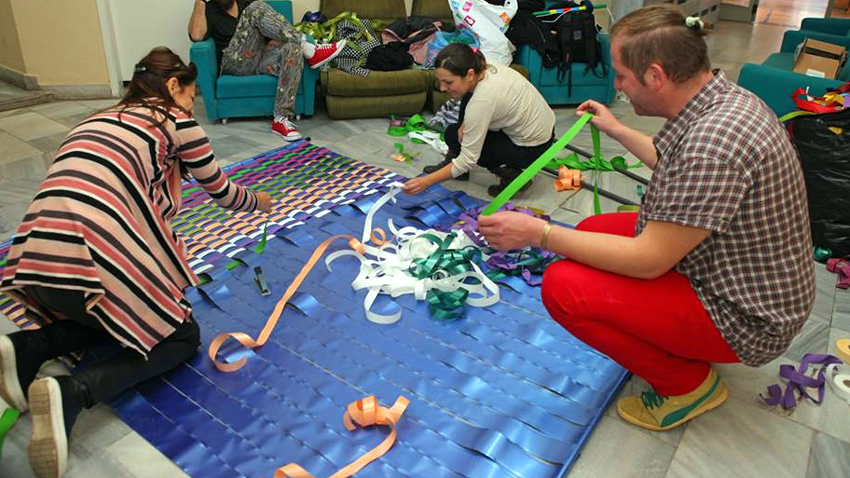This past weekend, Vratsa in northwestern Bulgaria was the setting for a forum looking into how empathy can change the face of society. The international forum for empathy-driven social change in Eastern Europe, seeking possible visions of the future took place for the third year running.
Empatheast endeavours to defy the growing radicalization, the sense of fear in society and its insularization into “truth bubbles” in Bulgaria and around the world. The forum aims to set down the points where generations, city and village, centre and periphery intersect and help us see these correlations in a new light. The location of this year’s forum carries a significance of its own. Northwestern Bulgaria is the poorest region of Europe with the fastest shrinking population.
Yanina Taneva, organizer of the event:

“The image the region projects – the poorest region with the greatest amount of problems - provoked us to bring together experts with a practical turn of mind who have been able to find solutions to all kinds of problems in this country and around the world. We wanted to talk to them about the potential of the region and try and shape a new view of northwestern Bulgaria. There are incredible young people in these parts, natural and historical resources, things that deserve to be shown to the world. Another reason is that in Vratsa we encountered the support and saw the need young people have of just such a forum on social change.”

Many and different things happened during Empatheast. One of the intriguing events was Catapult. The aim was to present the ideas of social change to the local people and to all those engaged with social entrepreneurship. Three ideas connected with the region around Vratsa were given support at the forum.
“One idea was to develop a hike route in the environs of Chelopech village. In point of fact it is the track described by the patriarch of Bulgarian literature Ivan Vazov in his story One Bulgarian woman. The route will help students feel empathy for the character in the story, Granny Iliitsa who followed that same trail, they will be able to meet her descendants and know that she was a real person, not just a character in a book. The other ideas involve helping villages gain access to culture. Even though it is in villages that traditional Bulgarian culture is preserved best, people living there have very little contact with modern culture – cinema or music, for example. One of the winning projects proposes meetings between actors and people in these villages.”
But where does empathy come in? Everywhere we turn, we see a lack of empathy. The logical response is to build relationships and ties across different levels in our lives. In this, empathy is a great help.

“We brought in the student councils in Vratsa. They are the volunteers we have in these parts, the backbone of the event and that is the reason why I know it was well worth it. They are aged 14 to 17 and they learnt so much about international practices from the experts, they saw what the country could be like, how we could communicate with one another. I believe that is something that makes perfect sense.”
“We are so well prepared for our yesterdays but if we want to be prepared for our tomorrows, we need to relinquish our fears and listen to what others are saying” Yanina Taneva goes on to say. “Because fear creeps in to fill a void – lack of information and knowledge. One thing is clear, we have nowhere to run, the world has no other alternative to offer. That is why we should build a country in which human relationships should be underpinned by understanding, a country free of fear, so we may move on.”
English version: Milena Daynova
Photos: EmpatheastThe Bulgarian national minority in Albania is one of the largest in the country, according to data from the latest official population census. A total of 7,057 individuals identified as Bulgarians. For comparison, 23,000 people identified as Greeks,..
From today, residents of Stara Zagora, young and old, can send their letter to Santa Claus. A letterbox has been set up in the foyer of the city's State Puppet Theatre to collect messages for Father Christmas. The cultural institution guarantees that..
A Christmas tree with Bulgarian decorations has been placed in a central location at the Griffin Museum of Science and Industry in Chicago. For the fifth consecutive year, Bulgarians living in Chicago crafted the lavish decoration of the Bulgarian..
For the 30th consecutive year, the Bulgarian Posts organize a contest for the most beautiful letter to Santa Claus. Letters must be sent by 18..

+359 2 9336 661
